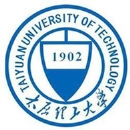At present, TYUT occupies an area of over 500 acres, with a public building area of 1.2 million m2. There areover 30,000 undergraduates, over 5,000 postgraduates and nearly 800 PhD candidates. There are 79 undergraduate majors, 123 masterstations, 51 doctoralstationsand 13post-doctorate research centers.
In addition, TYUT has 3 national key disciplines, 4 national-level model centers of experiment education, 5 national-level promotion programs of special disciplines, and 7 National Centers for Engineering Practice and Education. Currently, there are 3,575 teaching staff members, among whom 2,055 are full-time teachers, 941 are professors, 157 supervisors of PhD candidates, 16 academicians of the Chinese Academy of Sciences and the Chinese Academy of Engineering (including double employed academicians). According to the “2016 Disciplines and Majors Evaluation Report on Chinese Universities”, the majors of Mechanical Manufacturing and its Automation, and Material Shaping and Control Engineering, have for the first time entered the national 5 star undergraduate disciplines. In addition, TYUT’s engineering discipline, material science discipline and chemical science discipline all rank top 1% among ESI Global Disciplines Ranking.
TYUT began recruiting international students in the early 1980s. There are over 500 international students on campus. Since 1980s, TYUT has enrolled international students from over 100 countries covering United States, Canada, France, Germany, United Kingdom, Russia, Japan, South Korea, Thailand, Burma, Vietnam, Afghanistan, Malaysia, Mongolia, Philippines, Yemen, Nepal, Bangladesh, Sri Lanka, Palestine, Pakistan, Kazakhstan, Turkmenistan, Cameroon, Nigeria, Benin, Ghana, Kenya, Malawi, Seychelles, Mauritius, Mozambique, Sultan, Congo (gold), Congo (Brazzaville), Zambia, Equatorial Guinea, South Africa, Zimbabwe, Chile, Peru, Bolivia, France, Italy, Britain, Spain, Belgium, Germany, Holland, Romania, United States, Canada, Jamaica, Antigua and Barbuda, the British Virgin Islands, Venezuela, Samoa, Cook islands, Australia, Kiribati, and Saudi Arabia. Apart from learning Chinese, international students can also study for bachelor’s degree, master’s degree or doctorate degree.




